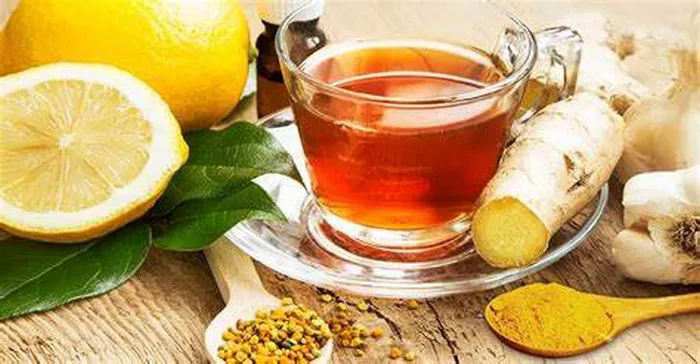In the realm of natural remedies for various health concerns, tea stands out as a time-honored beverage that offers not only warmth and comfort but also potential health benefits. One area where tea has garnered attention is in its ability to help lower cholesterol levels. This article delves into the world of teas known for their cholesterol-lowering properties, exploring their mechanisms of action, scientific evidence, and practical tips for incorporating them into a balanced diet.
Understanding Cholesterol and Its Implications
Before delving into specific teas, it’s crucial to understand what cholesterol is and why maintaining healthy levels is important for overall well-being. Cholesterol is a waxy substance produced by the liver and also found in certain foods. While the body needs cholesterol to build healthy cells, excessive levels can lead to plaque buildup in the arteries, increasing the risk of heart disease and stroke.
There are two main types of cholesterol: low-density lipoprotein (LDL) cholesterol, often referred to as “bad” cholesterol, and high-density lipoprotein (HDL) cholesterol, known as “good” cholesterol. High levels of LDL cholesterol are associated with an increased risk of cardiovascular disease, while HDL cholesterol helps remove LDL cholesterol from the bloodstream, reducing the risk.
The Role of Tea in Cholesterol Management
Tea, particularly certain varieties like green tea, has been studied for its potential to lower cholesterol levels. Several compounds found in tea, including catechins, theaflavins, and flavonoids, are believed to contribute to its cholesterol-lowering effects. These compounds may inhibit cholesterol absorption in the intestines, promote its excretion, and improve lipid metabolism.
Teas That Pack a Cholesterol-Lowering Punch
1. Green Tea: Renowned for its antioxidant properties, green tea has also been studied for its cholesterol-lowering benefits. Catechins, especially epigallocatechin gallate (EGCG), are thought to play a role in reducing LDL cholesterol levels. Regular consumption of green tea, ideally several cups a day, may contribute to improved lipid profiles.
2. Black Tea: While not as extensively studied as green tea in relation to cholesterol, black tea contains theaflavins and thearubigins, compounds formed during fermentation, which may have cholesterol-lowering effects. Some studies suggest that black tea consumption may modestly reduce LDL cholesterol levels.
3. Oolong Tea: Positioned between green and black teas in terms of oxidation, oolong tea offers a unique profile of polyphenols that may contribute to cholesterol management. Limited studies indicate that oolong tea consumption may help lower LDL cholesterol and improve lipid metabolism.
4. Hibiscus Tea: Known for its vibrant color and tart flavor, hibiscus tea contains antioxidants like anthocyanins and polyphenols that may have cholesterol-lowering properties. Some research suggests that hibiscus tea consumption may lower LDL cholesterol and triglyceride levels.
5. Pu-erh Tea: Fermented and aged, pu-erh tea is rich in bioactive compounds like theaflavins and thearubigins, similar to those found in black tea. While more research is needed, preliminary studies suggest that pu-erh tea may help reduce LDL cholesterol levels and improve lipid profiles.
Incorporating Tea Into Your Lifestyle
To harness the potential cholesterol-lowering benefits of tea, consider the following tips:
Choose Quality Teas: Opt for high-quality loose-leaf teas or tea bags from reputable sources to ensure maximum potency and flavor.
Brew Properly: Follow brewing guidelines for each type of tea to extract optimal flavor and health benefits. Steeping times and water temperatures can vary.
Limit Additives: Minimize the addition of sugar, milk, or cream to tea to avoid negating its health benefits, especially when targeting cholesterol management.
Be Consistent: Incorporate tea into your daily routine for sustained benefits. Aim for several cups a day, spread throughout the day for better absorption.
Combine With Healthy Habits: While tea can complement a heart-healthy diet, it’s essential to also focus on other lifestyle factors like regular exercise, maintaining a healthy weight, and avoiding smoking.
Scientific Evidence and Considerations
While numerous studies have explored the potential health benefits of tea, including its cholesterol-lowering effects, it’s important to note that individual responses can vary. Factors such as genetics, overall diet, and lifestyle habits can influence how tea affects cholesterol levels. Additionally, tea should not be viewed as a standalone treatment for high cholesterol but rather as part of a comprehensive approach to heart health, including medical guidance when necessary.
Conclusion
Tea, with its rich array of bioactive compounds, holds promise as a natural ally in managing cholesterol levels and promoting cardiovascular health. From the antioxidant power of green tea to the nuanced flavors of oolong and black teas, exploring different varieties can add both pleasure and potential health benefits to your daily routine. By incorporating tea mindfully and consistently, alongside a balanced diet and healthy lifestyle choices, you can take proactive steps toward supporting your heart health and overall well-being.


